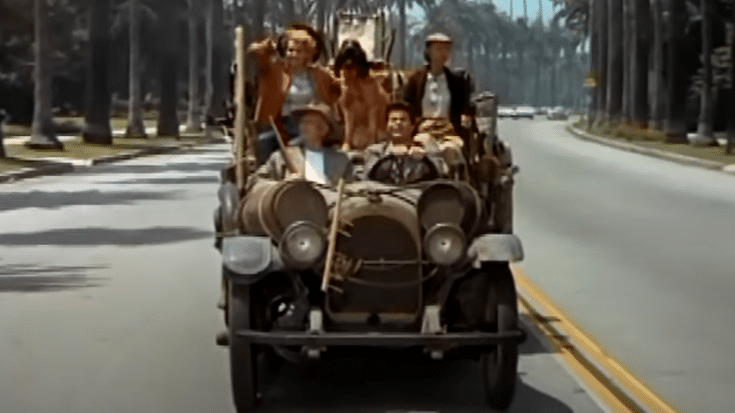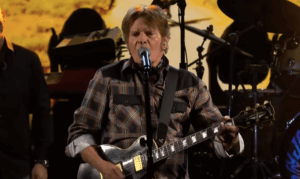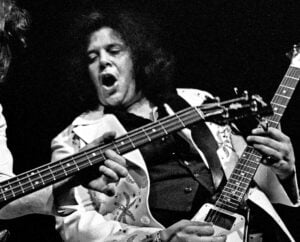10 Best 60s TV Families We Grew Up With

via TeeVees Greatest / YouTube
The 1960s brought some of the most memorable TV families into our homes, offering a mix of humor, heart, and adventure. These shows captured the quirks, values, and sometimes the chaos of family life in a way that resonated with audiences. Here are ten of the most unforgettable 60s TV families that shaped childhood memories for generations.
1. The Cleavers – Leave It to Beaver
The Cleaver family was the picture of classic suburban life in Leave It to Beaver. Parents Ward and June raised their two sons, Wally and Beaver, with patience and kindness, setting a model for family values during the 60s. Their stories focused on simple, relatable childhood dilemmas.
Wally’s older-brother wisdom and Beaver’s innocent mischief brought balance to the household, offering life lessons without losing charm. The Cleavers’ gentle approach made them a comforting presence on TV, one that audiences could rely on to show the ups and downs of growing up.
2. The Addams Family – The Addams Family
Unlike most TV families, the Addamses embraced the weird and eerie. With Morticia and Gomez at the helm, they redefined what a close-knit family could be, showing warmth beneath their spooky exterior. Each family member had quirks, from Uncle Fester’s experiments to Wednesday’s dark sense of humor.
The Addams Family made the strange seem endearing, winning fans over with their loyalty to one another and unapologetic lifestyle. Their bond reminded audiences that being different was okay, and that family could thrive even when living on the “darker side” of life.
3. The Bradys – The Brady Bunch
The Brady family blended two separate families into one, creating a cheerful household full of shared experiences. Mike and Carol Brady, each bringing three children, navigated the challenges of a large family with humor and understanding, setting a positive example of stepfamily life.
From sibling rivalries to bonding moments, the Bradys kept things light, teaching lessons of cooperation and acceptance. Each episode saw them handle everyday problems with a sunny outlook, and their catchy theme song still brings back memories of this quintessential 60s family.
4. The Munsters – The Munsters
The Munsters took the idea of a typical family and added a monster twist. Living in a spooky mansion, Herman, Lily, Grandpa, and the rest of the Munster clan looked strange but shared a warm, supportive bond. Their unique family dynamic turned the traditional sitcom family on its head.
Although they were outcasts in their community, the Munsters didn’t let that stop them from enjoying life together. The show made viewers laugh and cheer for a family that taught acceptance and celebrated individuality, despite their ghoulish looks and strange ways.
5. The Petries – The Dick Van Dyke Show
Rob and Laura Petrie were the embodiment of wit and style on The Dick Van Dyke Show. With Rob’s career in television and Laura’s charm at home, they balanced work and family life with humor. The couple’s chemistry and comedic timing brought energy to each episode.
Their son, Ritchie, completed the Petrie household, adding touches of innocence and childhood wonder. The Petries’ love and humor shone through in every situation, leaving viewers with a sense of warmth and laughter that defined family television during the decade.
6. The Nelsons – The Adventures of Ozzie and Harriet
As one of America’s first TV families, the Nelsons invited audiences into their real-life family dynamic. Ozzie, Harriet, and their sons David and Ricky played versions of themselves, bringing authenticity to their portrayal. Their everyday experiences made the Nelsons relatable and lovable to viewers.
The show’s mix of humor and real-life situations made it a comforting staple in the 60s. As the Nelson boys grew up onscreen, audiences followed along, making them feel like an extended part of the family’s journey through different stages of life.
7. The Douglases – My Three Sons
The Douglas family faced single-parenthood head-on, with Steve Douglas raising his three sons with help from their Uncle Charley. This setup gave My Three Sons a unique take on family life, highlighting the strong bond between father and sons as they navigated everyday challenges together.
Each son’s personality brought something special to the family, with Steve providing steady guidance. The show emphasized loyalty, resilience, and the importance of family support, making it a beloved part of 60s television for audiences who saw these values reflected onscreen.
8. The Clampetts – The Beverly Hillbillies
The Clampett family’s move to Beverly Hills brought comedy gold as they adjusted to their new life among the rich and polished. Jed, Granny, Jethro, and Elly May stayed true to their rural roots, even when surrounded by Hollywood glitz. Their down-to-earth ways clashed with the upscale setting.
While they often baffled their neighbors, the Clampetts’ close family bond won fans over, and their antics offered laughs while showing the strength of staying true to one’s roots. The Clampetts’ culture shock became a humorous symbol of family loyalty and resilience.
9. The Cartwrights – Bonanza
The Cartwright family on Bonanza stood out as a strong father-son team running a ranch in the Old West. Ben Cartwright raised his sons with principles of honor and bravery, teaching them the value of hard work and family. Their storylines often touched on justice and standing up for what’s right.
The Cartwrights’ bond and their adventures on the Ponderosa Ranch captivated audiences, making them one of TV’s most respected families. The show’s mix of action and moral lessons made the Cartwrights memorable and inspiring to viewers of all ages.
10. The Andersons – Father Knows Best
Although the Andersons’ TV run started in the 50s, their influence carried into the 60s, making them a classic example of the ideal American family. Jim and Margaret Anderson, along with their children, navigated life’s challenges with love and patience, reflecting the values of the era.
The Andersons’ daily experiences connected with viewers who saw their own family dynamics reflected on the screen. Their steady, supportive approach to family life made them a comforting presence, offering audiences a sense of stability in changing times.






















